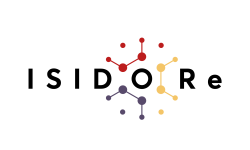Material provided: Protocol or Report (with Executive Summary)
Unit definition: Protocol: 1 person month; implementation min. 6 person months (senior researcher or PostDoc)
Provider country: Austria (MUW); Bangladesh (BRAC); United Kingdom (University College London)
Short Description:
Protocols and implementation of public engagement, acceptability and compliance will develop protocols for targeted measures and if needed, implementation of protocols.
Medical University of Vienna is one of the longest-established medical education and research facilities in Europe. With almost 8,000 students, it is currently the largest medical training centre in the German-speaking countries. With more than 6,000 employees, 30 departments and two clinical institutes, 13 medical theory centres and numerous highly specialised laboratories, it is one of Europe’s leading research establishments in the biomedical sector. The Unit Medical Anthropology and Global Health focuses on the socio-cultural implications and perceptions of infectious diseases as well as anthropological perspectives in emergency response and humanitarian assistance. Specifically, we plan, develop and evaluate community (or public) engagement activities related to outbreak response. This service provider can offer services in English and German.
University College London has a global reputation for excellence in research and is committed to delivering impact and innovations that enhance the lives of people in the UK, across Europe and around the world. UCL anthropologists originally developed the Vulnerability Assessment to detect and evaluate social drivers of vulnerabilities and have implemented it in dozens of cities around the world. The variants for infectious diseases, COVID-19, and antimicrobial resistance are offered in the framework of ISIDORe. This service provider can offer services in English and German.
James P Grant School of Public Health, BRAC University, Bangladesh. BRAC University is a private University in Bangladesh with deep experience of seeking solutions to challenges posed by extreme poverty. The team has substantial experience conducting community engagement in relation to multiple problematics (antimicrobial resistance, epidemics) in Bangladesh and has the capacity to work with South Asian service users to guide implementation of a vulnerability assessment and to develop a community engagement plan to be put into place following a VA. This service provider can offer services in English and Bangla.
The service aims to provide protocols to establish baseline evidence on the acceptability of response efforts (e.g. isolation and quarantine of cases, contact tracing, vaccination) and the inclusion of vulnerable and marginalized groups into such activities by public health institutions.
A social science preparedness and response intervention usually consists of expert and/or stakeholder interviews (online), and/or focus group discussions or other group interview processes with affected groups. The interviews and discussions will follow a semi-structured interview guide. Interviews will be recorded, transcribed and coded with atlas.ti (Nvivo). Analysis of transcripts will take place by usual qualitative approaches, such as content analysis.
The final product of the intervention will be regional or national, as well as locally implemented community engagement strategies, best practices and obstacles to include communities. The report will include local level recommendations to advance the use of community engagement strategies in contexts of public health emergencies.
Depending on the setting, for this activity a minimum of 6 person-months will be calculated.
The development of a protocol for submission to the ethical clearance board of the MUW will be calculated with 1 person-month.
The team will be coordinated by a senior investigator (PhD in anthropology/social sciences/public health, or equivalent); expert interviews will be conducted by a junior researcher (MA in anthropology/social sciences/public health, or equivalent)
A protocol and/or 15-20 pages report (per setting) including a 2 page-executive summary with recommendations.
 The ISIDORe project has received funding from the EU Horizon Europe research and innovation programme under grant agreement No. 101046133.
The ISIDORe project has received funding from the EU Horizon Europe research and innovation programme under grant agreement No. 101046133.